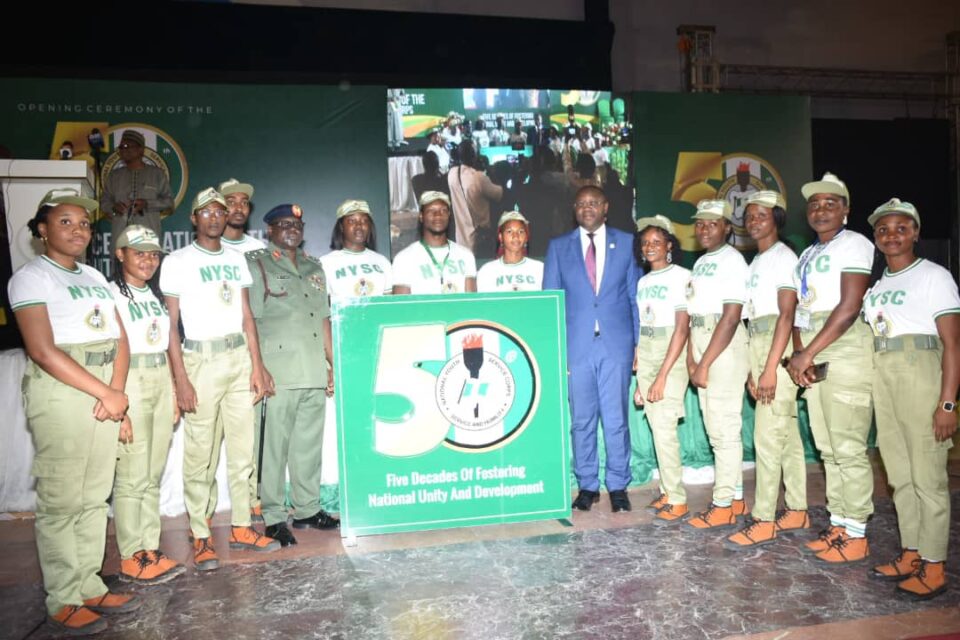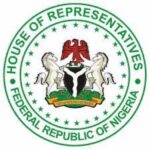By Godwin Onuh Odeh
Decree No. 24 of 22nd May 1973, which repelled the Decree No. 51 of 16th June 1993, amended as NYSC ACT CAP N84 Laws of the Federation 2004 established the NYSC. The aim is to represent the initial criticisms that greeted the establishment of scheme and how it has circumvented them and continued fifty years after.
The history of NYSC may be traced to the Nigerian civil war fought between 1967 and 1970. Generally General Yakubu Gowon is held to be the founder of the scheme, which appear correct to some extent as even attested to by the naming of the National Directorate Headquarters, Maitama Abuja as “Yakubu Gowon House”. However, one may add a caveat to that the history of NYSC goes beyond Gowon’s regime and more so that he never independently conceived and consolidate the idea of it. It documented that series of crisis that overwhelmed the nation made patriotic Nigerians in America to hold meetings in the 1960s leading to a resolution calling on the Federal Government under Sir Abubakar Tafawa Balewa, to establish an organization similar to the United States Peace Corps. Consequently, by a way of follow up, the call was made again and in 1966, but General Johnson Thomas Umunanakwe Aguyi-Ironsi, from all indication he was unable to act on it before his regime was overthrown. General Yakubu Gowon may have gotten clue from this calls or at best, he acted on it.
In retrospect, even before the move or the call by the Nigerians in the United States, Nigerian student leaders had made similar requests. The cumulative effect of this made the military government proclaimed NYSC Scheme in 1972, with the start year of 1973. Thus, on the 22nd May, 1973 the military government officially declared the National Youth Service Corps (NYSC) Scheme. Ironically, despites series of initial calls from home and abroad to establish the Scheme, NYSC was grossly misunderstood and greeted with cynicisms across the country with Nigerian student leaders giving it maximum criticisms.
Since 1973, NYSC has undergone certain changes to protect it and make it more suitable to the society and in the eyes of targeted youths. Some of the changes are as follows:
NYSC Amendment Decree No. 2 of 1974 prohibits any civil action against the Government in implementation of the Scheme;
Decree No. 11 of February 1974 protects the interest of ex-corps members in relation to their salaries or any other financial remuneration payable to them vis-à-vis their contemporaries who account of age, health or other grounds were exempted from participation in the Scheme;
In July 1977 age was removed as a ground for securing exemption from participation in the Scheme, but reintroduced with effect from August, 1985;
The legal notice of 1974 , extends the coverage of the Scheme to include Nigerians graduating in non-Nigerian institutions of higher learning;
no.51 of 1993 replaced National Director with Director General as the Chief Executive of the Scheme;
The 1993 Decree return the Scheme to the Presidency;
The 1993 Decree replaced the “Directorate” with “National Directorate”;
By the 1993 Decree “State Governing Board” replaced “NYSC State Committee” with its membership and functions retained;
The 1993 Decree provides for the establishment of an “NYSC Local Government Committee” in each Local Government Area in the country and specifies the compositions and functions;
It stipulates that the Government of a State/FCT should give a minimum of N500,000 annual subvention to the State /FCT Secretariats ;
It mandate creation of Zonal Offices in line with the Federal Military Government’s objective of grass root development; and ,
The new Act of 2004 essentially retained the objectives of the Scheme.
A survey of the above shows most of its objectives has been achieved though there are still work to be done. Against the backdrop of the noble aim and achivements of the schme General Sani Abacha of the blessed memory unequivocally observed that: “the National Youth Service Corps Scheme has undoubtedly become a household name in Nigeria”. He further maintained that:
Twenty one years after the establishment of the National Youth Service Scheme in Nigeria, the course of our national experience continues to reinforce the relevance of its conception in our effort at nation building. Our resolve and commitment and resolve as a government to support the Corps and strengthen its programmes remain as strong as ever.
In whatever sector of the economy and in any rural areas the name “corper” is mentioned, it is well known. Even long after the end of service year (decade and decade), old participants or ex-corps members are fondly called “corper” by communities and by the people they mingled and lived with during service year. NYSC as a matter of fact has outlived most of its critics and what was planted like a small grains of biblical mustard seeds mobilizing 200 corps members in year is now mobilizing hundreds of thousands of graduate at a go. Despite initial setbacks and several challenges of the nation, the scheme has done pretty well having gotten national and international fame and recognition. Thus, the story of NYSC at fifty is nothing but the story of travail and travail; victory of optimism over pessimism and above the triumph of enlightenment over ignorance.
*Dr. Godwin Onuh Odeh, Senior Lecturer, Specialist in NYSC History and Youth Studies,
Department of History, Sokoto State University, Sokoto-Nigeria.



